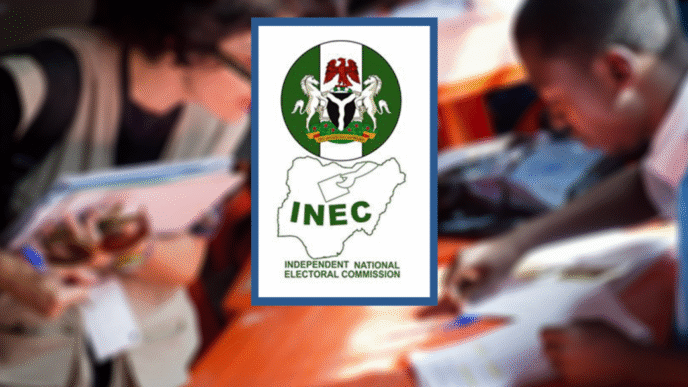Abeokuta, Nigeria — The Nigeria Immigration Service (NIS) has expressed grave concern over the rising number of Nigerians losing their lives in Europe and the United States as a result of illegal migration and migrant smuggling in search of greener pastures.
Comptroller-General of Immigration, Kemi Nandap, sounded the warning on Thursday during the nationwide Anti-Smuggling of Migrants Sensitisation Campaign held at the NIS Headquarters in Abeokuta, Ogun State. She lamented that thousands of Nigerians, particularly young people, continue to fall prey to human traffickers and illegal migration syndicates who lure them with false promises of better opportunities abroad.
According to Nandap, many victims of such illegal ventures end up facing inhumane treatment, sexual exploitation, and forced labour, while some tragically lose their lives during perilous journeys across the Sahara Desert or the Mediterranean Sea.
“We are deeply worried about the increasing number of Nigerians dying in their attempt to cross into Europe and America through irregular routes. These are journeys that often end in sorrow, anguish and regret,” Nandap said.
She called on the people of Ogun State — a border region notorious for cross-border movement — to resist the temptation of illegal migration and instead pursue legitimate means of traveling or building sustainable livelihoods within the country.
Illegal Migration: A Growing National Concern
Illegal migration has become one of Nigeria’s most pressing social and economic challenges in recent years. Thousands of citizens, driven by unemployment, insecurity, and economic hardship, embark on dangerous trips through North Africa in hopes of reaching Europe or North America.
International organisations, including the International Organization for Migration (IOM), have repeatedly raised alarm over the increasing number of Nigerian migrants intercepted or rescued along irregular routes. Between 2017 and 2023, IOM estimates show that over 30,000 Nigerians attempted to migrate illegally through the Mediterranean, with hundreds losing their lives annually.
Nandap noted that this grim reality calls for urgent action by communities, local authorities, and the Federal Government to strengthen awareness and discourage youth from falling into the traps of smugglers.
“We must not allow the dreams of our young people to be cut short in the deserts or the seas,” she warned. “Illegal migration is not only a violation of international law but also a tragedy that destroys families and undermines the nation’s image.”
Ogun Residents Urged to Join Awareness Campaigns
The NIS Comptroller-General appealed to traditional rulers, community leaders, youth associations, and religious organisations in Ogun State to partner with the Immigration Service in grassroots sensitisation efforts.
She explained that many migrants are unaware of the risks involved, often deceived by traffickers who promise lucrative jobs and safe passage abroad.
“I urge all residents to become ambassadors of this campaign,” Nandap said. “Parents must talk to their children about the dangers of irregular migration. Communities should expose smugglers and report suspicious recruitment agents to the authorities.”
The anti-smuggling campaign in Abeokuta, themed “Say No to Smuggling of Migrants: Protect Lives and the Nation’s Future”, attracted stakeholders from government agencies, civil society organisations, and youth groups.
The event featured road walks, educational sessions, and the distribution of sensitisation materials highlighting the legal, social, and psychological consequences of illegal migration.
Federal Government Intensifies Border Security and Public Enlightenment
The Federal Government has in recent months stepped up measures to curb human smuggling and irregular migration, including tightening border patrols, enhancing data sharing among agencies, and improving visa control systems.
Under the leadership of Comptroller-General Nandap, the NIS has intensified collaboration with international partners such as the United Nations Office on Drugs and Crime (UNODC) and the IOM to identify smuggling networks and rehabilitate victims of human trafficking.
Nandap disclosed that the Service is currently implementing new technology-driven border management systems that can track illegal migration routes, monitor suspicious movements, and ensure real-time response to cross-border crimes.
She also emphasised that Nigeria’s migration challenges require a whole-of-society approach, involving cooperation from families, community leaders, and state governments.
“We must combine law enforcement with education. It is not enough to stop people at the borders; we must also prevent them from leaving in the first place through awareness and empowerment,” she said.
The Human Cost of Irregular Migration
Many Nigerians who undertake irregular migration face unimaginable hardships. Reports show that thousands are stranded in transit countries such as Libya, Niger, and Morocco, where they endure torture, extortion, sexual abuse, and slavery in detention camps.
Those who make it across the Mediterranean often face deportation, discrimination, or imprisonment in Europe. Some are forced into prostitution or low-paying jobs under inhumane conditions.
A 2024 report by the National Agency for the Prohibition of Trafficking in Persons (NAPTIP) revealed that young women and minors account for nearly 60% of Nigerian victims of trafficking abroad, while the majority of male victims fall into forced labour or debt bondage.
Nandap described these statistics as “a wake-up call” for Nigerians to rethink the pursuit of opportunities through illegal channels.
Creating Safer Alternatives for Youth
To reduce the lure of illegal migration, the NIS and other government agencies are urging Nigerian youths to take advantage of legitimate migration pathways, including student visas, skilled labour programmes, and bilateral work agreements facilitated by the Federal Government.
The Immigration boss also highlighted the importance of economic empowerment at the local level, calling for increased investment in job creation, vocational training, and small-scale enterprise development to give young people hope and opportunities within Nigeria.
“Migration in itself is not a crime. What we are discouraging is irregular migration — the type that involves deceit, exploitation, and danger. Our young people can explore genuine global opportunities through legal processes that guarantee their safety and dignity,” she added.
Stakeholders Pledge Support
Representatives of the Ogun State Government, local security agencies, and civil society organisations who attended the event commended the NIS for leading the sensitisation drive and pledged support for continued awareness efforts.
Mrs. Tolu Ajayi, a community advocate, described the initiative as “timely and necessary,” especially at a time when unemployment and misinformation about foreign opportunities are pushing many young Nigerians into risky ventures.
“We must protect our youth from becoming victims of modern-day slavery. Every community must play its part,” she said.
Similarly, the Ogun State Commissioner for Youth and Sports, represented by his deputy, called for stronger collaboration between the state and federal agencies to integrate migration awareness into youth development programmes.
A National Call to Action
As the campaign continues nationwide, the NIS says it will sustain its outreach efforts across schools, markets, and rural communities to educate Nigerians about the perils of illegal migration.
The Service also reiterated its commitment to ensuring that Nigeria’s borders remain safe and well-managed, not just to prevent illegal migration but also to strengthen national security and economic stability.
“Every Nigerian life matters,” Nandap concluded. “Let us work together to end the needless deaths of our brothers and sisters abroad. The greener pasture we seek can be cultivated right here at home.”














